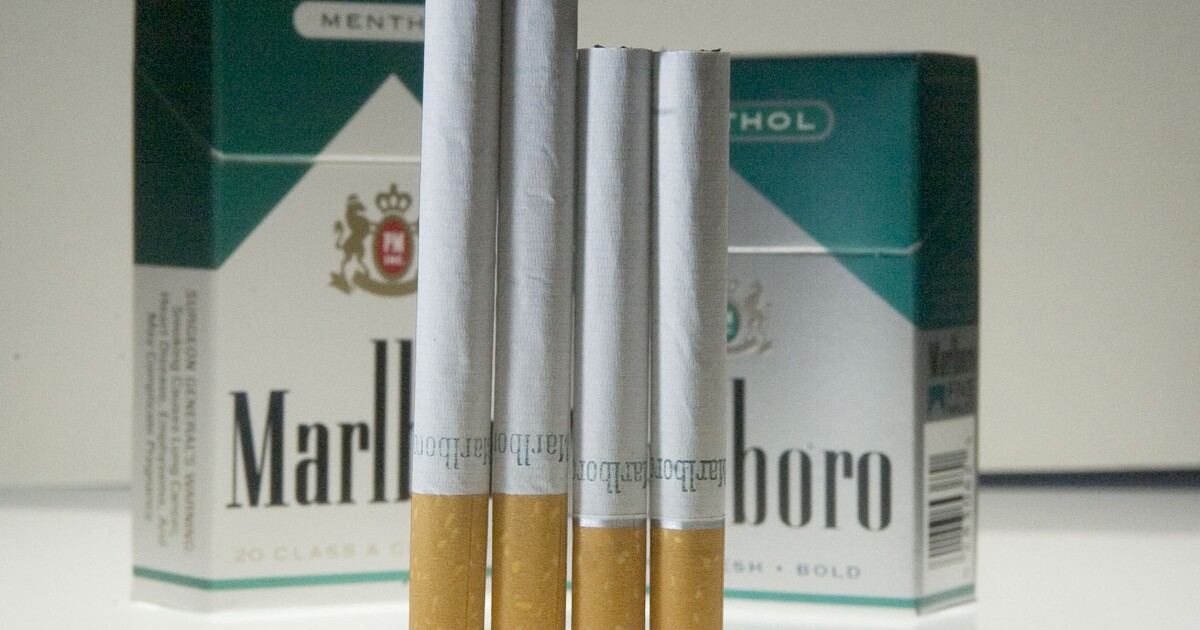

The Food and Drug Administration is poised to institute a complete ban on menthol cigarettes, spurring black community activists and public safety experts to raise the alarm on how illicit markets created in response to the measure will disproportionately affect communities of color.
“Menthol has not killed anyone, it’s nicotine,” said Gwen Carr, an activist and the mother of Eric Garner. “If you’re going to ban smoking, don’t make it a racist thing. Ban it all or ban none.”
UP FOR DEBATE: TRUMP, DESANTIS, AND 2024 GOP HOPEFULS’ STANCE ON CRIME
Smoking opponents have been calling for a menthol cigarette ban since 2009, when Congress exempted menthol from a ban on flavored cigarettes. The FDA initially considered a ban in 2013 during the Obama administration and then resumed the large administrative task in 2018. The agency is expected to release its decision on the menthol ban this month.
Menthol naturally soothes the throat and airways and is commonly used in cough suppressant medications. In cigarettes and other tobacco products, menthol creates a cooling sensation that makes inhalation easier. According to the Centers for Disease Control and Prevention, menthol can also change the way the brain processes taste and pain.
Although cigarette smoking as a whole is declining, the smoking of menthol cigarettes is declining less rapidly, as indicated by the total share of menthol cigarettes on the market compared to non-menthol tobacco products.
Between 2008 and 2019, the total number of cigarettes either purchased or directly shipped for marketing purposes dropped by 36% to 202.9 billion individual cigarettes, according to the Federal Trade Commission.
Menthol cigarettes, however, only decreased by 13% in 10 years, to 75.1 billion in 2019. As a result, menthol cigarettes are now at an all-time high at 37% of the total market.
“Studies show that young people who start smoking menthol cigarettes are more likely to become addicted and become long-term daily smokers. It’s the only flavored combustible cigarette left on the market, therefore more appealing to youth,” according to the MD Anderson Cancer Center.
Advocates in the black community, however, are concerned that a ban on menthol cigarettes will disproportionately harm communities of color and other minority groups.
As of 2019, 85% of black smokers and 48% of Latino smokers preferred menthol cigarettes. LGBT individuals as well as women and lower-income individuals were also more likely to purchase menthol cigarettes than non-menthol products.
Franklin told reporters that a ban on menthol cigarettes, which are popular among communities of color, will lead to an increased police response to deal with contraband materials.
“We know for certain prohibition does not work,” said Neil Franklin, former chairman of the policy organization Law Enforcement Action Partnership with over 20 years of narcotics policing experience. “Some of us did not learn from the lessons of alcohol prohibition.”
“If you think law enforcement are not going to get involved, you’re sadly mistaken,” Franklin said.
Franklin and his colleague, Elliot Boyce, formerly of the New York State Police, told reporters that a ban would naturally create “violent illicit neighborhood markets” for the products. Boyce and Franklin also both warned that children would be dragged into the sale of contraband cigarettes in a similar pattern as other illicit drugs.
In the context of building trust between black Americans and law enforcement, Franklin said, “This is the last thing we need.”
“We have been criminalized enough,” Carr said.
Garner was killed in Staten Island in 2014 after New York City police officers attempted to stop him from selling single cigarettes, or “loosies,” on the black market and an officer put Garner in a chokehold. Enforcement of illicit cigarettes in New York became more prominent after then-Mayor Michael Bloomberg instituted punitive taxes on cigarettes to collect revenue and discourage smoking.
Boyce also noted that China is already sending contraband tobacco products into the United States and that Chinese and Latin American cartels would easily step in to fill the void caused by an FDA ban.
“[Smoking] is a public health problem,” Rahn Bailey, former president of the National Medical Association, told reporters. “[Solving it] with a legal solution … will cause more problems.”
CLICK HERE TO READ MORE FROM THE WASHINGTON EXAMINER
To address the problem, both public health and law enforcement advocates advised that the FDA should conduct a racial impact study of how banning menthol will affect communities of color, including the creation of illicit markets, as well as increase funding for education and smoking cessation programs.
“We’re always the last to get treatments,” Carr said. “We get the crumbs and a lot of times it’s not helping us.”



